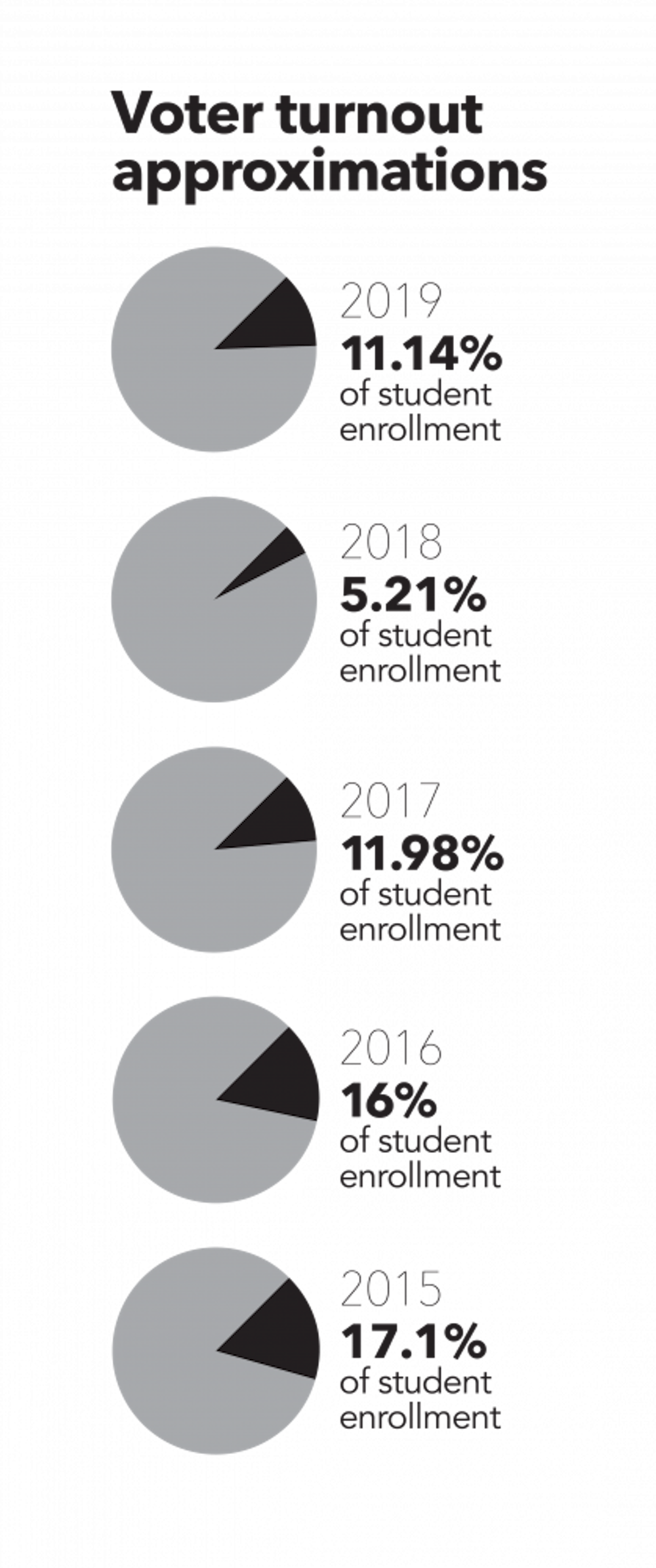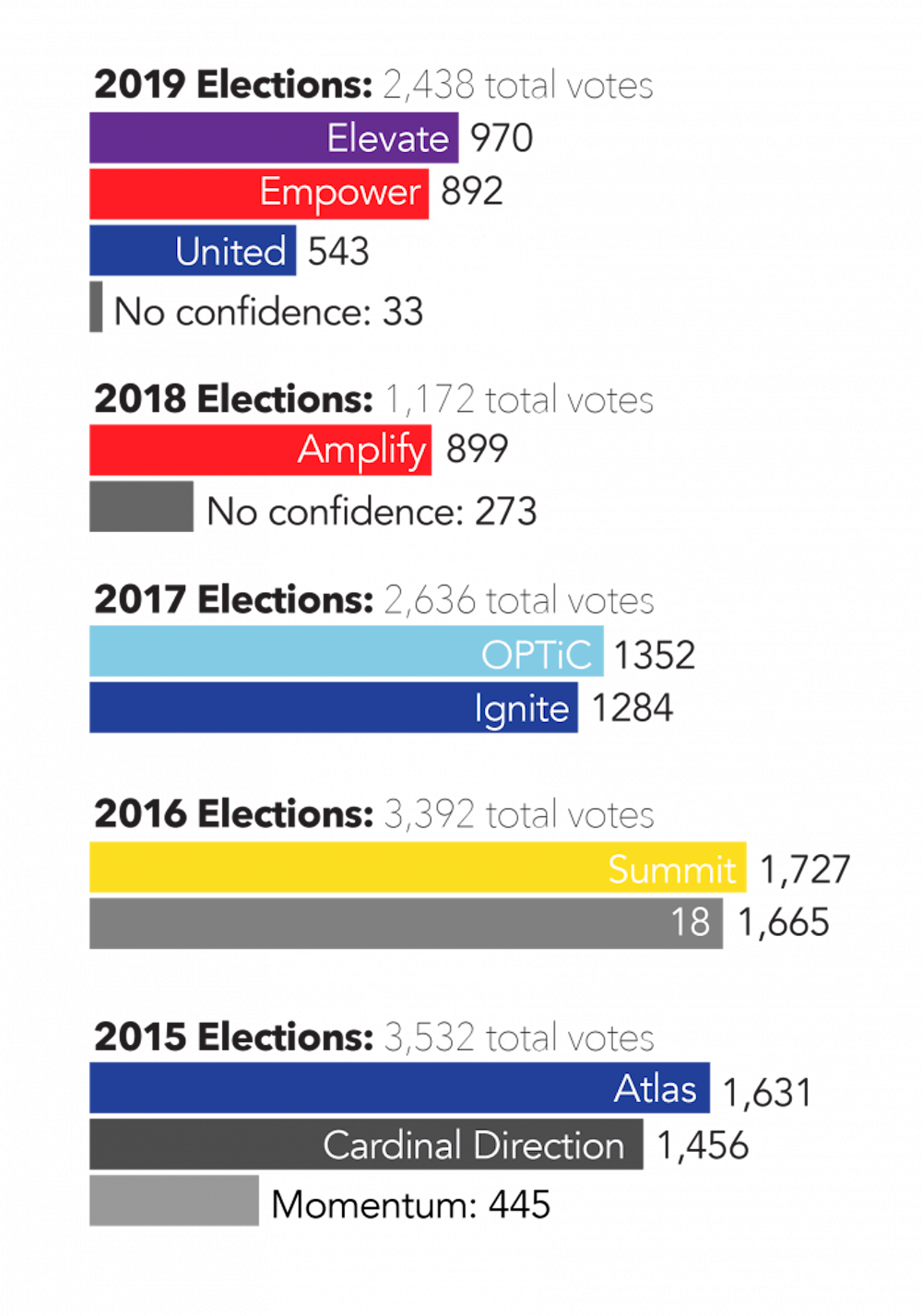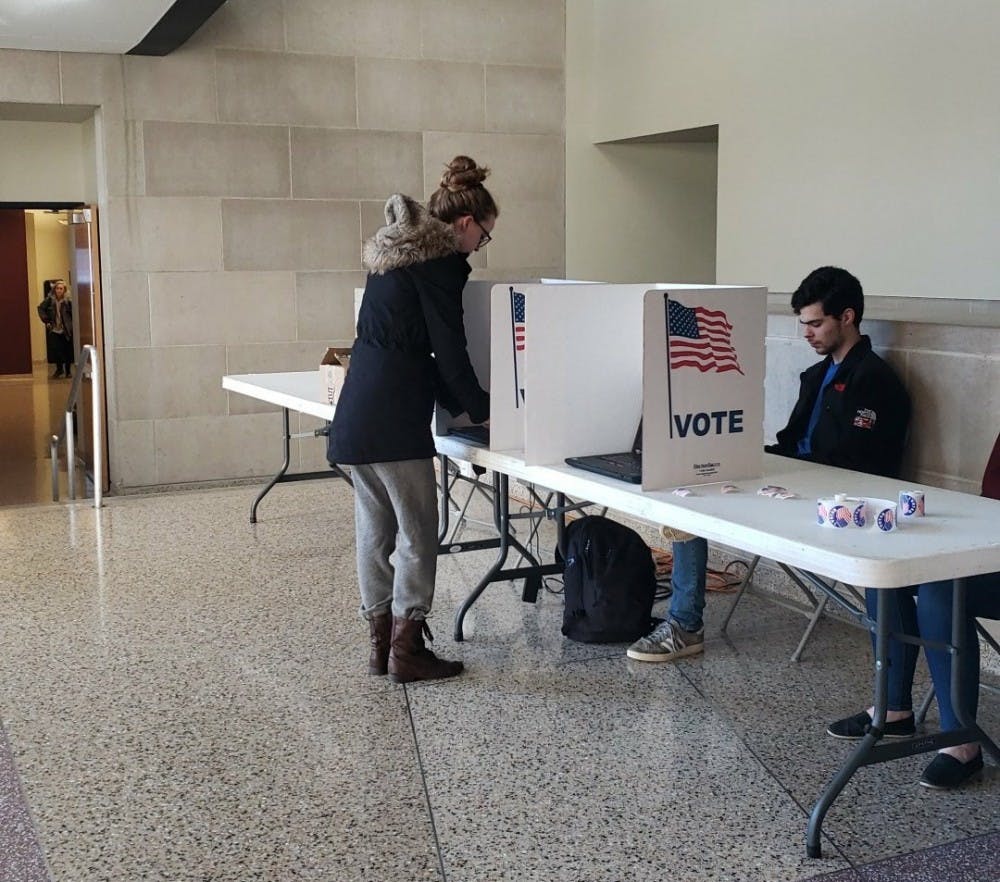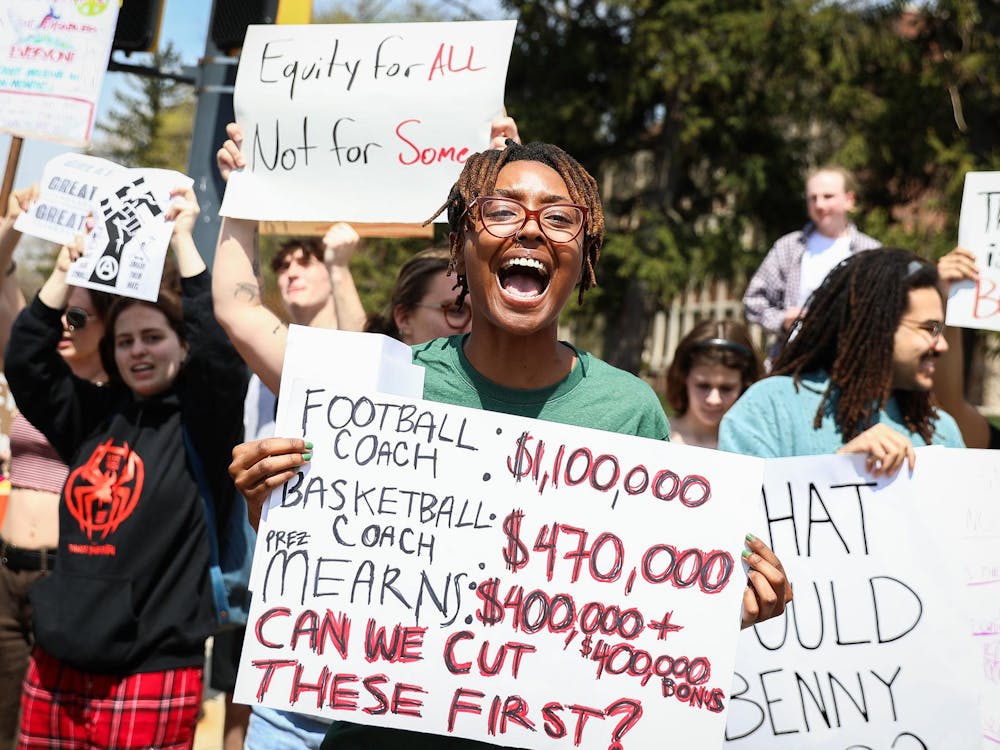Votes cast in Tuesday’s first round of Ball State’s Student Government Association (SGA) election were relatively low compared to Ball State’s student population of nearly 22,000 students.
While more than twice as high as voter turnout in 2018’s election when only one slate ran, this year’s turnout is 198 students less than 2017’s election when two slates ran.
Samantha Jazayeri, junior criminal justice and psychology major, said she didn’t vote in the election. In fact, she said she didn’t even hear about it.
“Just not enough time I guess,” Jazayeri said when asked why she didn’t vote. “I don’t really know how [to vote]. I didn’t really know a lot about it.”
Chad Kinsella, assistant professor of political science, said runoff elections usually result in some voter fatigue, leading to a decline in voter turnout.
“The interest kind of falls off,” Kinsella said. “You have to generate that interest again.”
Voter turnout depends on how interested people are, how the parties excite voters and how close people perceive the vote to be, he said.

Enrollment totals for voter turnout approximations were calculated using the Fall semester on and off campus, full-time and part-time numbers of the previous year. Emily Wright, DN
“The key question would be, ‘Are they going to get everybody to vote like they did before?’ because generally, that’s not something that people in Indiana are used to — or really in the United States,” he said.
Kinsella said runoff elections mean slates have to appeal to people who didn’t win in the first round and get enough of them to vote for the slate to help it win above 50 percent of the votes. This means slates will have to reach out to other people, which — in a democracy — is a good thing, he said.
“Our American system has always been first past the post, single member districts and most Americans — we still feel like that’s the way things should be done,” Kinsella said.
He said adopting other voting systems depends on what the need is and there’s no “one best way.”
Regarding Ball State’s SGA election, Kinsella said he believes disinterest among students was a main reason for the low voter turnout.
Lauren Atkinson, freshman psychology and criminology major, said she didn’t vote in the SGA election because she really didn’t know about it.
Atkinson said she doesn’t really have an idea about what SGA does other than hosting events, and would like to know more about what it does. She said sending out emails was the best possible way for SGA to reach out to her.
Other than lack of knowledge about SGA and the elections, Kinsella said, because students are here for only a few years, there’s not a lot of permanency to the elections.
“Aside from the faculty and staff, it’s a totally transient population,” he said.
Kinsella said most students would have no clue what SGA does and might assume it to be “just a popularity contest.”
Cameron Ulrey, freshman pre-law major, said he did vote in the SGA election for the slate that came to his fraternity, Sigma Phi Epsilon, and talked about their platform points.
“I want to say, email everybody — but I know people don’t read their emails a lot, or at least a lot of people don’t,” Ulrey said when asked how SGA should reach out to students.
Ulrey also suggested going to big events like the Dance Marathon and Late Nite as another means of reaching out to students.
Contact Rohith Rao with comments at rprao@bsu.edu or on Twitter @RaoReports.

Emily Wright, DN





